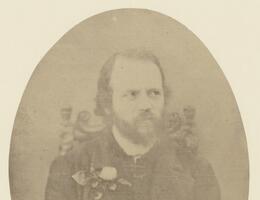
Charles-Valentin ALKAN
1813 - 1888
Composer, Pianist
A pupil at the Paris Conservatoire from the age of seven, Alkan studied piano under Zimmermann, harmony under Dourlen, and organ under Benoist, until 1834, all the while composing and performing in public. In the 1830s, when he was teaching solfège at the Conservatoire, he was no doubt overshadowed by the brilliance of Liszt. The majority of his works were composed in the 1840s. His output, which consisted mainly of works written for the keyboard (piano or pedal piano), was highly virtuosic and explored various different genres: etudes, preludes, different types of concerto, impromptus, and sonatas (such as the noteworthy Grande Sonate “Les Quatre Âges”). Alkan’s unique imagination drew its roots from the French imitative tradition of the previous century and was also influenced by Viennese classicism and the figure of Bach—Alkan was one of the most active champions of his rediscovery in France. A friend of Liszt and Chopin (of whom he was the only rival), Fétis (with whom he discussed theoretical matters), Lammenais, Hugo and Sand, Alkan took part in the aesthetic debates of his time, but his austere personality remained a puzzle to everyone. His concert appearances were rare and little is known about certain periods of his solitary life. He became more misanthropic from 1848, the year he failed to obtain the post of professor of piano at the Conservatoire. It was after this that he became heavily involved in various Jewish musical institutions. Around 1873, he returned to the public eye when he began organising the “Petits Concerts de Musique Classique.”
Scientific publications
Publication




